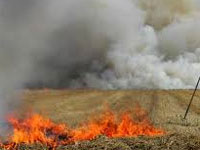The case for action on black carbon
Reducing black carbon emissions will help in avoiding climate tipping points, building resilience and delivering clean air. This policy brief outlines the latest science on black carbon, examples of cost
Reducing black carbon emissions will help in avoiding climate tipping points, building resilience and delivering clean air. This policy brief outlines the latest science on black carbon, examples of cost
<p>Ever since the electronic revolution, electronic devices have become an indispensable part of common man’s life. The rapid increase in the usage of such devices as well as instruments dealing
The objective of this study is to present the results of a model developed by Microsol with regards to cooking in rural households between 2018 and 2030, with information from three countries: Colombia,
Much of Asia has significant potential to achieve cleaner air and control near-term climate change by integrating short-lived climate pollutants (SLCPs) into their Nationally Determined Contributions (NDCs).
The Federal Executive Council of Ministers approved in May 2019 Nigeria’s National Action Plan to reduce short-lived climate pollutants. This plan, developed by the the Federal Ministry of Environment
Early and ambitious action to reduce short-lived climate pollutants (SLCPs) is essential to achieving the goals of the Paris Agreement and the Sustainable Development Goals. SLCPs include methane, hydrofluorocarbons,
DEHRADUN: A recent study by the Dehradun-based Wadia Institute of Himalayan Geology (WIHG) has found that black carbon travelling from Mediterranean countries during the western disturbance (which brings

This document is the annual European Union (EU) emission inventory report under the United Nations Economic Commission for Europe (UNECE) Convention on Long-range Transboundary Air Pollution (LRTAP Convention)
<p>The bottom-up traffic emission model EMISENS is used to calculate hourly black carbon (BC) and nitrogen oxides (NOx) emission rates on an average workday in Maribor (Slovenia), using emission factors

Crop residue burning in Punjab and Haryana is often blamed for worsening air quality in the Delhi National Capital Region. Now a new study by scientists working in the US and India has found that impact

HYDERABAD: Forget the core city of Hyderabad; even peripheral or peri-urban areas are now under the threat of poisonous black carbon particulate matter. A research study conducted in about two dozen areas